There are many stories that we have told ourselves in order to make our world make sense. These modern myths range from Columbus’ “discovery” of this continent to the very idea of the American Dream. These stories are taught to us from birth, intrinsically attached to the way we teach and learn our history—and are some of our greatest cultural exports. And it’s these lessons that are explored in Amir H. Fallah’s “Remember My Child…”.
Fallah, who has previously worked in veiled portraiture, tosses aside the model and instead creates a series of patchwork paintings, featuring everything from figures taken straight out of Islamic miniatures to images lifted from historical records and anatomy books. There is Christopher Columbus meeting Native Americans and being crushed by a globe, diagrams of the nervous system, and maps of the solar system. We see a chaotic confluence of patterns, designs, signs and symbols; Persian rugs, Art Deco icons and comic characters all adorn the paneled paintings.
In fact, Fallah drew much of his inspiration from his own childhood viewing America from afar while living in Iran, his formative years spent here in the U.S., as well as his son’s view of the world and interests. The hodgepodge of imagery showcases the mixing of two cultures, two identities. Fallah presents this duality in his work as it exists within himself as an individual between worlds.
And while many of his works reside in the allegorical—and can be picked apart as metaphors for immigrant life in the western world or for the ways in which identities can be muddled and unclear—his paintings are at their core understandable. There are few unfamiliar symbols, and the paintings are readable and clear. The unifying thread between all his works is the use of textual elements to form moralistic lessons; my personal favorite is one that strikes me as a lesson for our times: “Sentiment without action, is the ruin of the soul.”
Shulamit Nazarian
616 N La Brea Avenue
Los Angeles, CA 90036
Show runs through Oct 31st
Appointment Only—No Walk-Ins

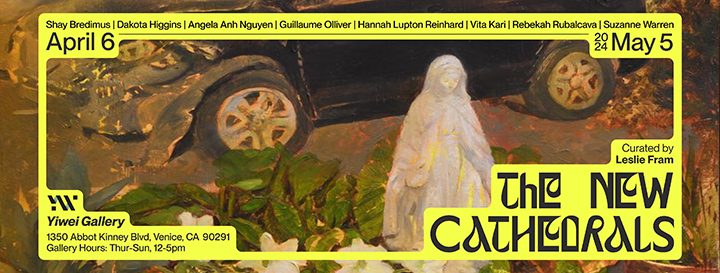



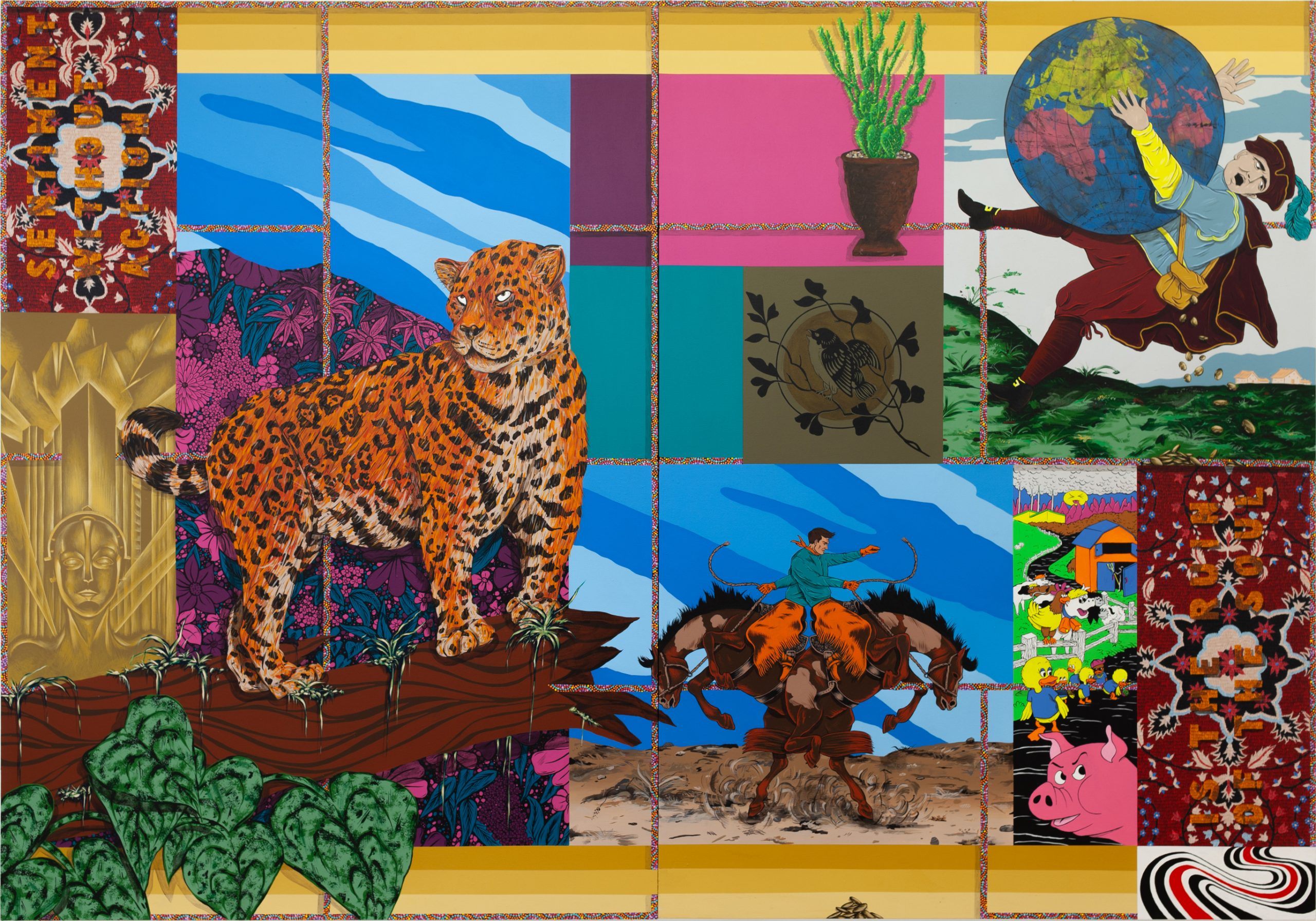
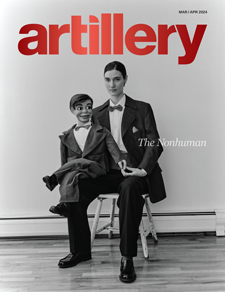
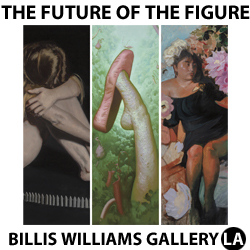


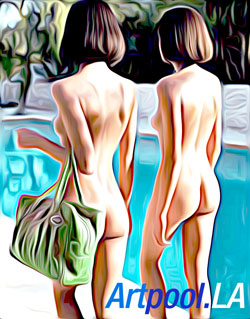
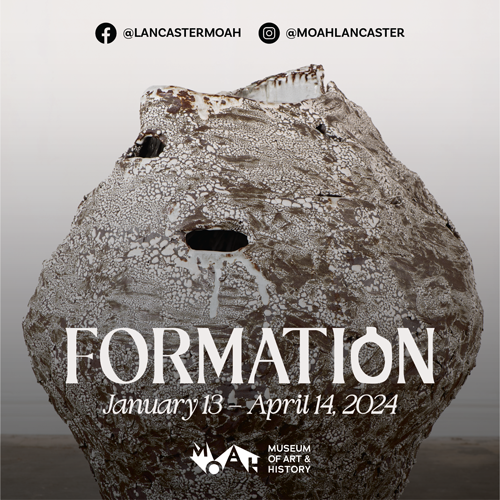

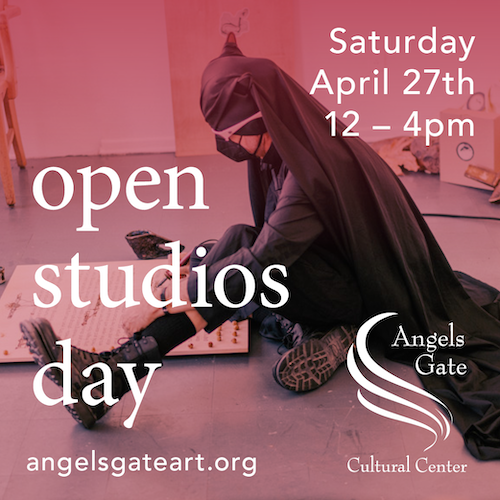
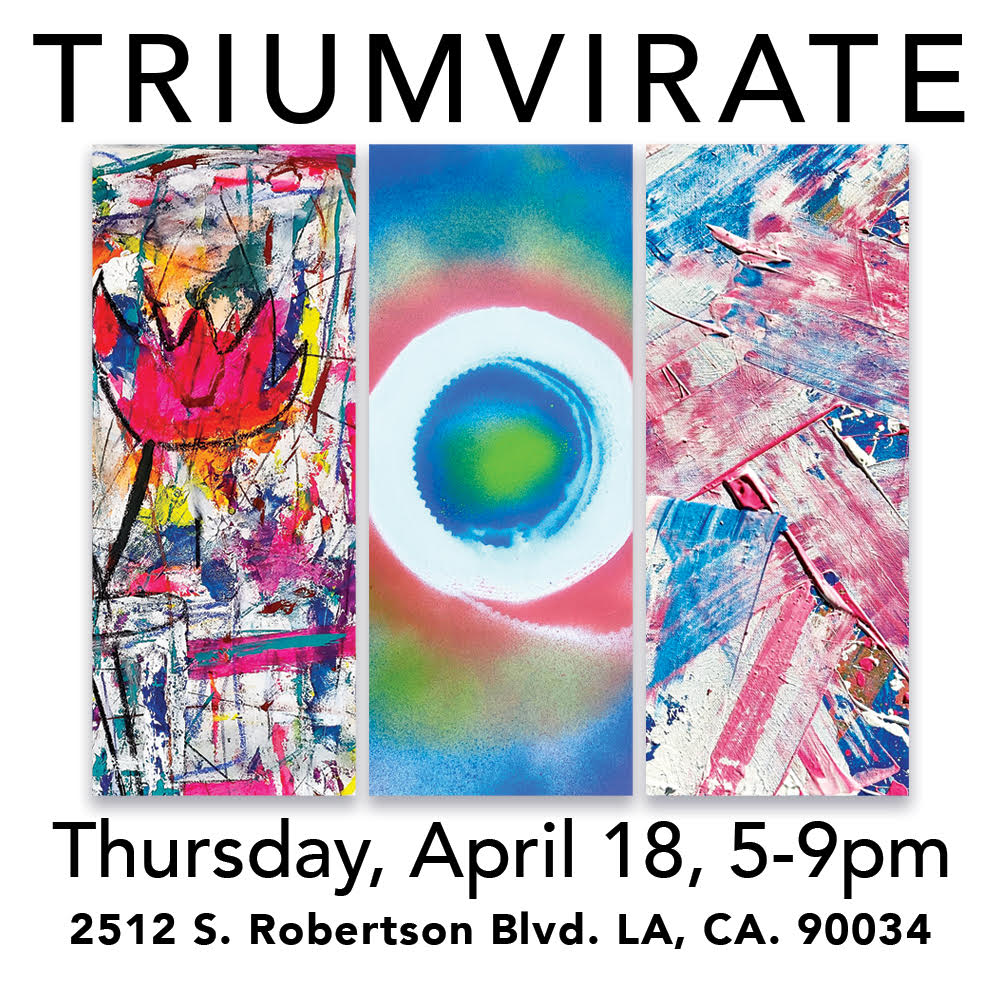

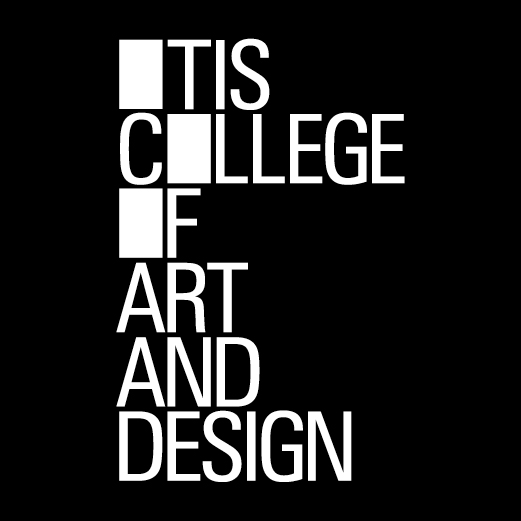
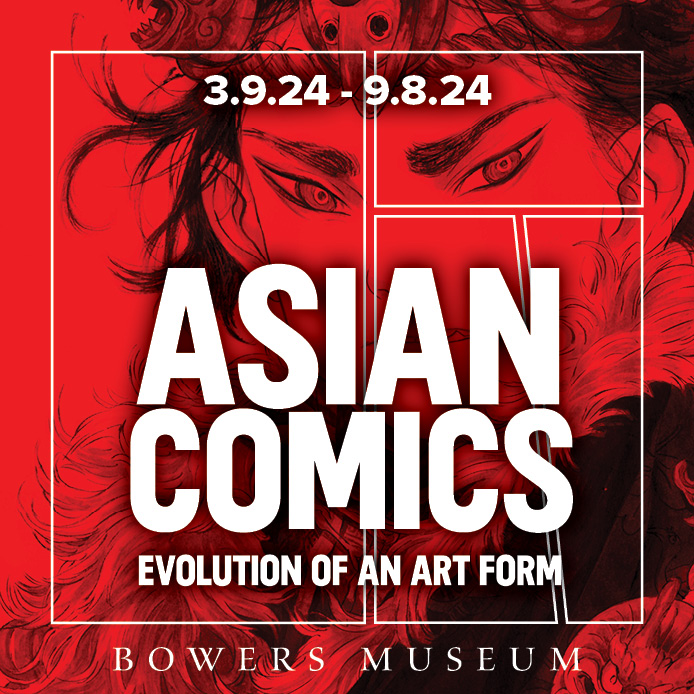
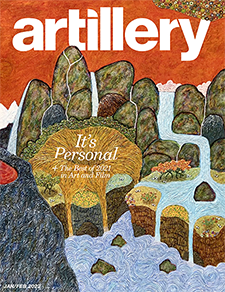
0 Comments